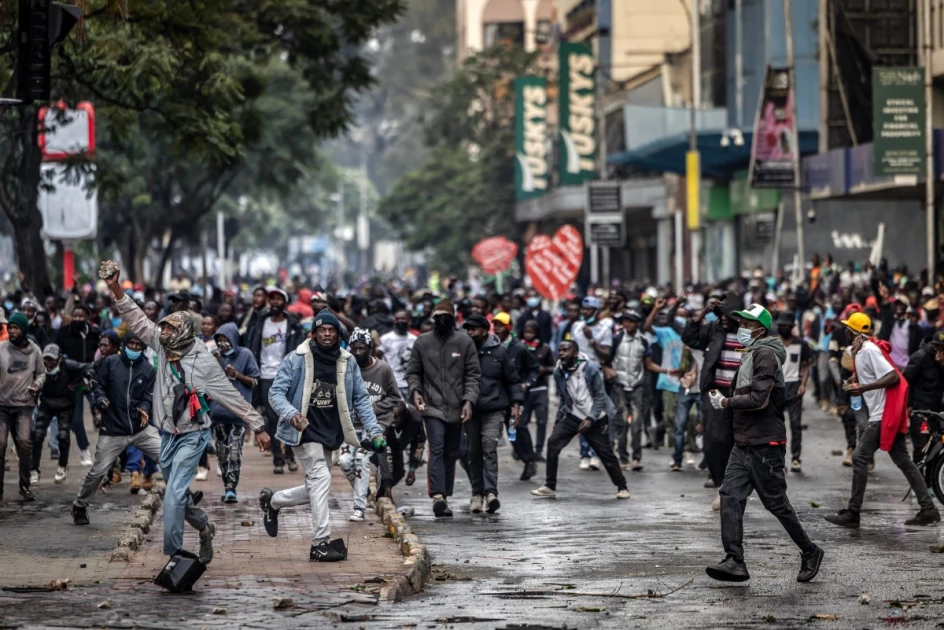Esther Passaris pushes for new law to block protesters from protected areas including Parliament

Protesters march as they confront Kenya police officers during clashes in downtown Nairobi on June 25, 2025 during a planned day of protest marking the first anniversary of the storming of the parliament. (Photo by Luis TATO / AFP)

Audio By Vocalize
Members of Parliament are moving swiftly to enact a law aimed at shielding themselves and other institutions from future public demonstrations.
In a proposed
amendment to the Public Order Act (Cap 56), Nairobi County Woman Representative Esther Passaris
is seeking to bar demonstrators from assembling within 100 meters of protected
areas, including Parliament. Her proposal seeks to establish clearly demarcated
assembly and demonstration zones in which public meetings and processions may
take place, in line with Article 37 of the Constitution.
Passaris is
also pushing for amendments to Section 2 of the Public Order Act to redefine
the terms "public meeting" and "public procession."
Additionally, she proposes including definitions for "capital city,"
"city," "urban area," and "assembly and demonstration
zone."
“The proposed
Section 5B prohibits holding a public meeting or procession within a 100-meter
radius of the precincts of Parliament, as described under the Parliamentary
Powers and Privileges Act, protected areas under the Protected Areas Act, and
buildings housing courtrooms,” Passaris said. Violation of this provision would
be considered an offense, punishable by a fine not exceeding Ksh.100,000,
imprisonment for up to three months, or both.
Appearing
before the National Assembly’s Security and Administration Committee, Passaris
defended her proposal, stating it is not intended to infringe on freedom of
expression but to ensure demonstrations are conducted in an orderly manner.
“Order is not
the enemy of democracy, but its foundation. I urge the committee to support
this bill—not for the government, not for Parliament, but for Kenya,” she said.
“When I thought about this law, my intention was to protect the sanctity of the
institutions that hold us together,” she added.
However, the
proposal divided the committee. Some members raised concerns about its
implications for civil liberties.
Kisumu County Woman Representative Rosa Buyu questioned the potential impact on the right to be heard, noting
that protests often occur when citizens feel unheard and need to publicly
express discontent.
“My issue is,
if we designate protest zones in places with no people—remote areas—and tell
demonstrators to go there and shout themselves hoarse, are we not undermining
their freedom of expression?” she asked.
Nyakach MP
Aduma Awour warned against passing laws in reaction to the recent Gen-Z-led
protests, urging his colleagues to address the root causes of public
dissatisfaction instead.
“For peace to
prevail, justice must be seen to be done. We need to approach this matter
soberly. Where there is injustice, people will naturally feel contempt,” he
said.
“Let us not
act out of emotion and pass laws that can’t be implemented. If you say no one
should come near Parliament and they show up in their thousands, what will you
do—shoot them all?” he posed.


Leave a Comment